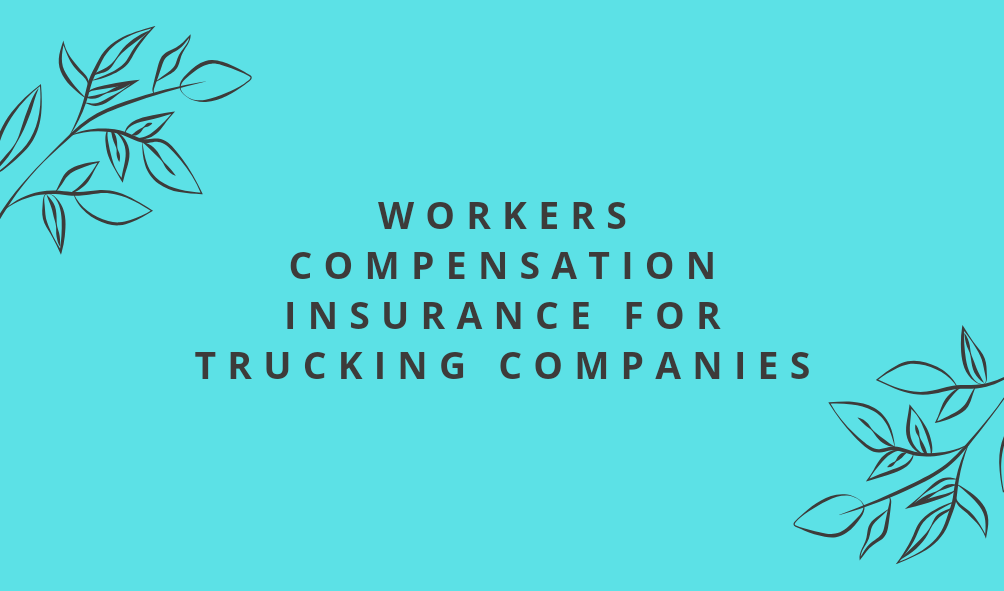Workers Compensation Insurance for Trucking Companies
Introduction
Workers compensation insurance is essential for trucking companies due to the high-risk nature of the industry. Truck drivers often face hazardous conditions, long hours, and physically demanding tasks, making them susceptible to injuries. This insurance not only protects employees but also safeguards the company from potential financial losses due to workplace injuries.
Importance of Workers Compensation Insurance
Workers compensation insurance is a mandatory requirement in most states. It provides medical benefits and wage replacement to employees who suffer job-related injuries or illnesses. For trucking companies, this insurance is particularly crucial given the unique challenges and risks associated with the industry.
Coverage Details
Workers compensation insurance typically covers:
- Medical Expenses: Covers costs related to medical treatment, hospital stays, surgeries, and rehabilitation.
- Wage Replacement: Provides partial wage replacement for employees who are unable to work due to their injuries.
- Disability Benefits: Offers compensation for temporary or permanent disabilities resulting from workplace injuries.
- Death Benefits: Provides financial support to the dependents of an employee who dies as a result of a job-related incident.
Common Risks in the Trucking Industry
Truck drivers face numerous risks, including:
- Vehicle Accidents: Collisions and accidents are common due to long hours on the road.
- Musculoskeletal Injuries: Lifting heavy objects, loading and unloading cargo, and repetitive motions can lead to strains and sprains.
- Slips and Falls: Climbing in and out of trucks or slipping on icy surfaces can cause serious injuries.
- Exposure to Hazardous Materials: Drivers transporting hazardous materials are at risk of chemical exposure.
Benefits to Trucking Companies
Having workers compensation insurance offers several benefits to trucking companies:
- Legal Compliance: Ensures the company adheres to state and federal regulations.
- Financial Protection: Protects the company from costly lawsuits and medical expenses.
- Employee Retention: Demonstrates a commitment to employee safety and well-being, fostering loyalty and reducing turnover.
Cost Factors
The cost of workers compensation insurance for trucking companies depends on several factors:
- Number of Employees: More employees typically mean higher premiums.
- Type of Freight: Companies transporting hazardous materials may face higher insurance costs.
- Claims History: A history of frequent claims can lead to increased premiums.
- Safety Record: Companies with robust safety programs may benefit from lower rates.
Implementing Safety Programs
To reduce insurance costs and enhance employee safety, trucking companies should implement comprehensive safety programs:
- Regular Training: Provide ongoing training on safe driving practices and proper lifting techniques.
- Vehicle Maintenance: Ensure all trucks are regularly inspected and maintained to prevent accidents.
- Health and Wellness Programs: Promote health initiatives to prevent musculoskeletal injuries and encourage healthy lifestyles.
Conclusion
Workers compensation insurance is a vital component for trucking companies, offering protection for both employees and the company. By understanding the risks, benefits, and cost factors, trucking companies can effectively manage their insurance needs and promote a safer work environment. Implementing proactive safety measures can further reduce risks and enhance overall operational efficiency.






